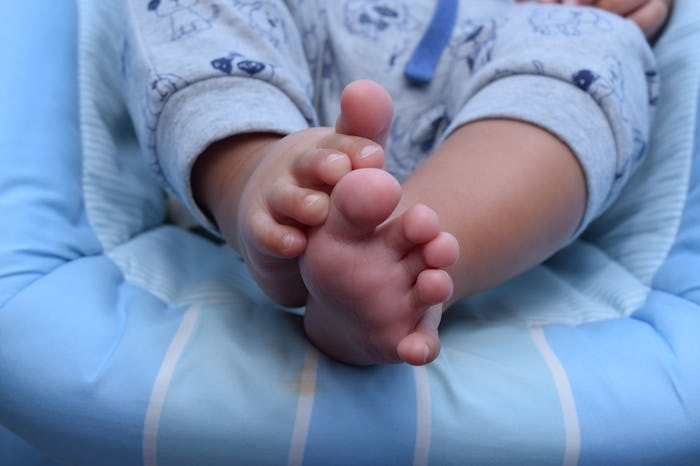News

New Research Finds Some Daycare Centers Are Still Using Recalled Infant Sleepers
Months after the U.S. Consumer Product Safety Commission (CPSC) announced recalls on various infant sleepers over safety concerns, a report published this week found that daycare centers are still using recalled infant sleepers. According to researchers behind the report, confusing recall messaging and a lack of direct alerts may be to blame.
In a survey of 376 child care facilities that watch children under the age of 1 year old, U.S. Public Interest Research Group Education (PIRG) and the nonprofit organization Kids in Danger found that one in 10 facilities were still using at least one recalled infant sleeper. In fact, PIRG's survey found that recalled inclined infant sleepers were even being used at child care facilities in states like Wisconsin and Texas, where state laws prohibited child care facilities from retaining recalled children's products.
"We found these dangerous products still in use at some facilities despite the state bans," PIRG noted in its report. "Even one dangerous sleeper is one too many for parents to be comfortable."
In a press release put out Wednesday, PIRG characterized the survey's findings as proof that the current system of notifying consumers about recalls was inadequate. "Every day, millions of parents drop their kids off, assuming their daycares have the information they need to keep their kids safe," PIRG Consumer Watchdog Adam Garber said in a statement. "This failed recall is a wakeup call that our current system leaves too many infants at risk from these dangerous sleepers."
According to PIRG, Garber had been inspired to survey child care facilities across the United States about their use of infant sleepers across after discovering the daycare he took his son to in Philadelphia was still using a Fisher-Price Rock ‘n Play Sleeper, despite the product being recalled months earlier.
Earlier this year, a number of inclined infant sleepers were recalled by the CPSC earlier this year after infant fatalities were linked to the product. Although both Fisher-Price and the CPSC initially attempted to address the issue by warning parents and caregivers to discontinue use of the inclined sleeper as soon as infants began to roll over, some 4.7 million Fisher-Price Rock 'n Play Sleepers were ultimately recalled in April after a Consumer Reports analysis that linked 32 sleep-related infant deaths to the model.
A few weeks later, nearly 700,000 Kids II Rocking Sleepers were recalled after five infant fatalities were tied to the Kids II product. Most recently, a recall was issued for the Eddie Bauer Slumber and Soothe Rock Bassinet with model number BT055CSY and Disney's Baby Doze and Dream Bassinet with model number BT071DHS.
Ultimately, PIRG and Kids in Danger has blamed confusing recall messages for child care facilities' continued use of recalled inclined infant sleepers. They've alleged that the initial consumer warning regarding the Fisher-Price Rock 'n Play led some to conclude that proper use of the product would keep children safe.
"The current recall system relies on parents and daycare centers seeking out information or seeing recall notices in media, rather than direct notice from the recalling company," PIRG noted in a press release regarding the survey. They've argued that both parents and child care facilities should be directly and automatically notified of recalls and recommended that the U.S. Consumer Product Safety Commission work with companies to include child care facilities in any corrective action plans rolled out for recalled children's products.
"Announcing a recall does little to keep children safe if companies don't make efforts to reach the users of their faulty products,” stated Nancy Cowles, executive director of Kids In Danger. “Laws to prohibit the use of recalled products in child care is a good first step, but an effective recall depends on companies taking aggressive action to reach all users of their products and encouragement to participate in the recall.”